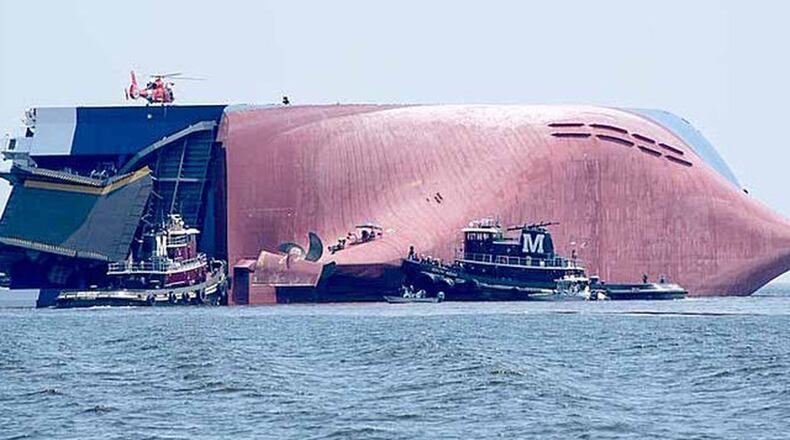Environmentalists continue to monitor the fallout from a capsized cargo ship near Saint Simons Island and express concerns about toxins from coal ash seeping into Georgia's waterways in this year's list of "Dirty Dozen" pollution problems.
The Georgia Water Coalition on Wednesday named what the group called some of the worst threats to the state's waters — with seven of the 12 concerns being "repeat offenders." The coalition, which includes more than 250 conservation and environmental organizations, said the list is not ranked in any particular order.
It names endangered areas across the state and the reasons they are under threat, including what the group said was inadequate state funding, a lack of political will to enforce existing protections and misguided policies.
“We wished we didn’t need to publish this report,” said Jesse Demonbreun-Chapman, the coalition’s executive director and riverkeeper with the Coosa River Basin Initiative. “But, every year, new threats to Georgia’s water arise and unfortunately, the state’s lax enforcement of environmental laws and its failure to fully-fund important environmental programs continues.”
The oil from the capsized Golden Ray cargo ship that has reached Georgia beaches and marshes is a new addition to the annual list after the vessel capsized in September.
Concerns on the list for at least a second time include proposed plans from Georgia Power for coal ash cleanup and pollution from the from the Rayonier Advanced Materials chemical pulp mill in Jesup into the Altamaha River.
“Addressing these issues through stronger enforcement of clean water laws, legislative action and sound permitting and policy decisions by state and federal agencies will ultimately lead to cleaner, healthier streams, rivers, lakes and estuaries,” said Joe Cook, a member of the coalition. “These actions must take place so there will be enough clean water for current Georgians and for future generations.”
About the Author
Keep Reading
The Latest
Featured





